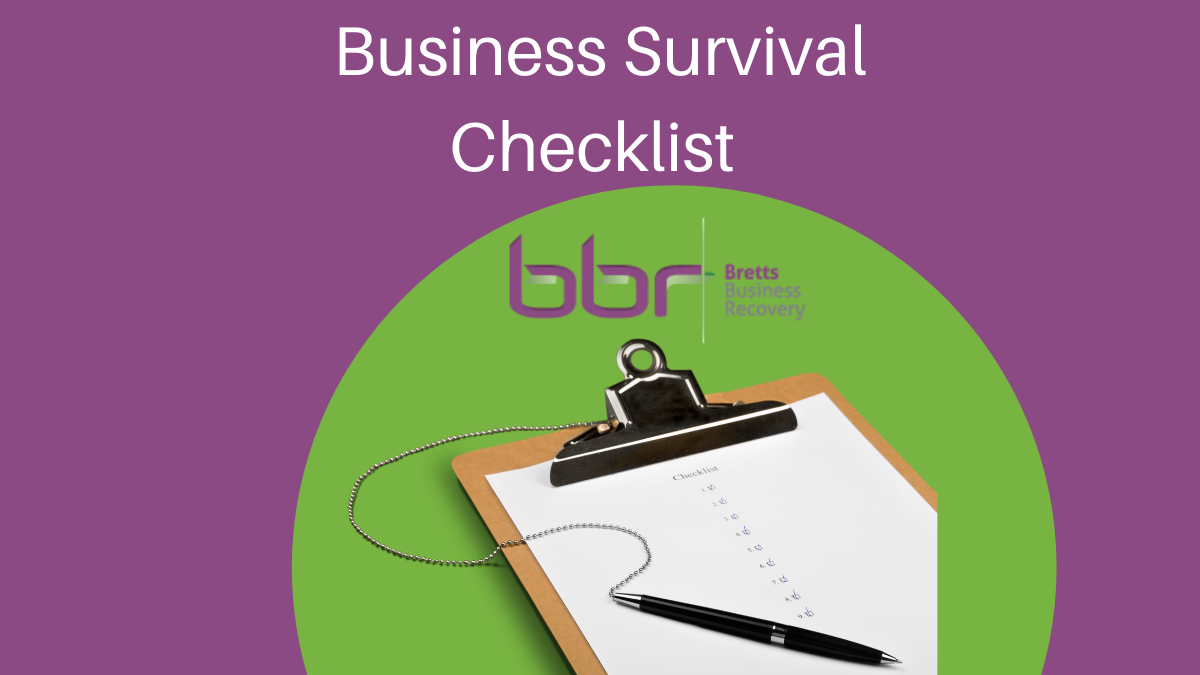Business Survival – A Checklist

Here are some key points you need to consider to ensure the operational success of your business:
1. Management Information
Ensure you have some and that you understand what it means. At the very least ensure that you know what cash you have in the bank, your debtors and your creditors at any point in time. Employ a bookkeeper or invest in good software so that you have these figures on a weekly basis. Keeping on top of your financial figures is key to the everyday operational success of your business.
2. Sales and marketing
You need to ensure that your business is seen, even in lean times when you may be unable to trade in the normal ways. Continuing to communicate with your audience is key, as is finding new ways to market or deliver your products or services to them.
3. Focus
Being focussed is especially key in lean times – don’t waste time or resource unless there is a clear reason and ROI. You may need to be brutal and see where you can cut or reduce costs – some of the “nice to haves” can be brought back when your balance sheet is healthier.
4. Plan and Communicate
You need to have a plan for your business – ideally one which includes short and long term goals. Review your plan regularly and revise it if necessary. Make sure you have contingency plans and arrangements in place. Communicate your plan to your team and share your vision. If you are going to make changes to your business you need to make sure your staff are all on the same page and know what you are trying to achieve.
5. Make use of support available
There is support available for businesses and the self-employed who have been unable to trade as normal over the last 12 months. See a full list of the measures here: Financial support for businesses during coronavirus (COVID-19) – GOV.UK (www.gov.uk). Remember that you need to be aware of when these measures end and factor in paying back any loans (eg bounce back loans)
6. Review processes and procedures
For maximum efficiency, ensure that there are systems and procedures in place wherever possible and that these are communicated to staff in an operations manual. This will help them to operate the business and not be dependant upon your input – allowing you to focus on running the business.
7. Know Your Competitors
It’s always good to know what your competitors are up to. How they “sell” themselves, their pricing structure and any offers they may be making. What are their strengths and weaknesses in comparison to your own? Can you exploit their weaknesses? Can you learn from their strengths?
8. Retain Satisfied Customers
Retention of your customers is key. It’s much more cost effective to retain existing customers than it is to acquire new ones. Look after them and show your appreciation. Make sure your marketing plan includes retention as well as acquisition strategies.
9. Cash Flow
Cash really is king. Cash flow is crucial to the lifeblood of the business but can be a tricky thing to manage. A sale is worthless until you have the cash in your bank. Ensure that you collect what is due to you in a timely manner. For more information on how to manage your cash flow and advice on credit management, see our guide here.
10. Consider your options
If you’ve undertaken all the steps outlined you’ll be in a position to know how viable your business is both now and in the future. Having this information and acting on it quickly is key to survival – the quicker you seek help the more options you’ll have for your business. See our help for businesses page here for more details.
If you’d like to discuss any of the above in more detail, please do get in touch.